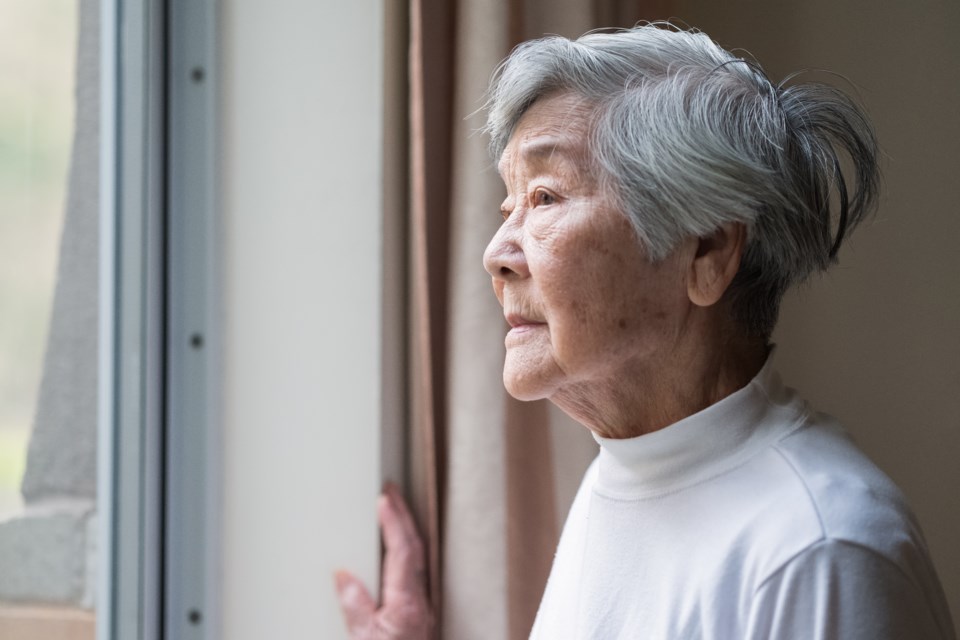Canada is facing a loneliness crisis with its aging population, states a new report from the National Institute on Ageing (NIA).
And the number of people impacted is on the rise, says Isobel Mackenzie, B.C.'s Seniors Advocate.
"We all need that human connection and a sense of belonging," she says.
Social isolation and loneliness are often used interchangeably, but they are not the same.
The NIA report emphasizes that social isolation is "a measurable deficiency in the number of social relationships that a person has" while loneliness is "an unpleasant sensation felt when a person’s social relationships are lacking in quality and/or quantity compared to what they desire."
In short, social isolation is measurable and objective, whereas loneliness is a subjective experience.
"You can live with other people and feel lonely, right? I think what we have to recognize is, what are the factors that contribute to this sense of isolation, which is different from loneliness. Sometimes, they are concurrent," Mackenzie says.
One of the contributing factors to isolation and loneliness is that people are living longer, she adds.
"The period of time that you're living after the loss of a spouse, for example. Or you're living quite long, and so you're seeing the death of all of your friends and social network — that is increasing because we are living longer, but not all of us are living longer," she says.
"Most people enter their aging years as part of a couple. And inevitably, one of the couple will pre-decease the other. You don't know exactly when, you don't know exactly who but on balance of probability, one person is going to remain living without the other person for a period of time."
The period when this happens is important because of its impact, Mackenzie tells Glacier Media.
"The older you are when you lose your spouse, oftentimes the more profound the impact because the more likely you are to have these other factors that are impacting your ability to engage with others," she says.
"You're not going out as much as you used to, your spouse is really your companion and then the loss of that spouse. And you don't have as strong a social network and connections as you might have had 20 years ago."
Physical effects of aging — like cognitive impairments alongside reduced social connection — compounds into loneliness or a sense of isolation, she says.
Raising awareness is key
Both the report and Mackenzie state that spreading awareness is key to prevention, especially on a national scale.
"Reminding people you need to get out there, you know, now that we've stopped telling them to stay home. There is absolutely a role around [telling people], 'You need to get out and be among people, and it's a good thing for you.' Everybody's got a social need, " says Mackenzie.
But locally, she says it's important to have a place for seniors to go.
"A practical thing on the ground, as a senior, I have a place where I can go, and there will be other people around, and I can have a cup of soup with them at least once a week," the seniors advocate says.
"I can find someone to play a game of bridge with if that's my want or I can talk to somebody about my challenges. And somebody's going to notice if I don't show up for a couple of weeks."



